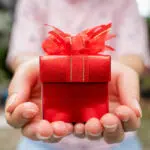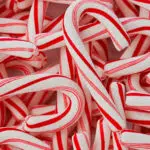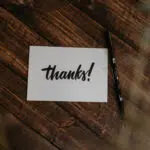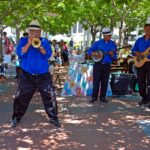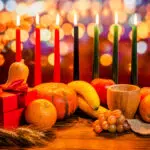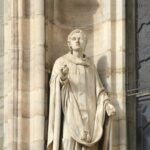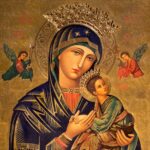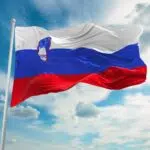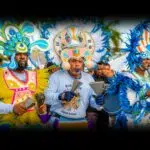Junkanoo is celebrated on December 26 and January 1 of each year. It’s next celebrated on December 26. It is celebrated across the English-speaking Caribbean in the form of parades full of music, dance, and costumes. The parades are most prominent in the Bahamas. Junkanoo is also celebrated among the Black-Caribbean diaspora in the cities of Miami and Key West in the United States. The festival comes from a long history of enslaved people of the African diaspora in the Bahamas celebrating the holidays granted around Christmas. The etymology of the word is disputed but many people believe that it is named after John Canoe, the European name given to the chief of the Ahanta people.
History of Junkanoo
Junkanoo comes from a long history of enslaved people of the African diaspora in the Bahamas celebrating the holidays during the Christmas season. The tradition continued after emancipation from slavery. Today, it is a formal and organized parade with intricate costumes, music, and prizes.The etymology of the word is disputed but many people believe that it is named after John Canoe, the European name given to the chief of the Ahanta people. As per Edward Long, an 18th-century historian and slave owner, John Canoe was an ally soldier for Germany until he deserted them to support his Ahanta people and fought European control of the region. Ever since news of his victory reached Jamaica, he became a celebrated figure from Christmas of 1708 onwards. 20 years after his victory, his stronghold was broken by Fante forces backed by the British. As a result, the Ahanta, Nzima (Akan), and Fante captives were taken as prisoners of war to Jamaica.Junkanoo includes motifs of battles in Akan fashion. Additionally, Ahantan war masks and war dance formations have also been a part of the parade. Junkanoo is celebrated across the English-speaking Caribbean in the form of parades full of music, dance, and costumes. The parades are most prominent in the Bahamas. Junkanoo is also celebrated among the Black-Caribbean diaspora in Miami and Key West.
Junkanoo timeline
Europeans begin operations of the Atlantic Slave Trade in the Caribbean Sea.
Canoe becomes a celebrated figure after he gains control over the abandoned Brandenburger fortress of Fort Fredericksburg and defends it against Dutch conquests.
The Bahamas is colonized by the British.
Slavery is abolished in the Bahamas.
Junkanoo FAQs
Which months is Junkanoo celebrated in the Bahamas?
It’s celebrated in December and January.
What religion is practiced in the Bahamas?
Many religions are practiced in the Bahamas, with about 70% of the population identifying as Protestant Christians.
What language is spoken in the Bahamas?
English is the official language of the country.
How to Observe Junkanoo
-
Learn about the history of Junkanoo
Read about what Junkanoo is and how it came to be. It’s bound to be an interesting discovery.
-
Watch a Junkanoo parade
Can’t attend a parade? Watch a video of the Junkanoo parade online.
-
Visit the Bahamas
If it’s within your means, visit the Bahamas this holiday season. This way, you can see Junkanoo processions yourself!
5 Interesting Facts About The Bahamas
-
Etymology
The word ‘Bahamas’ comes from the Spanish “baja mar,” meaning “shallow sea.”
-
Christopher Columbus
Contrary to popular belief, the Bahamas was Columbus’ landing site.
-
Wealth
The Bahamas has the third-highest G.D.P. per capita in the Western hemisphere as of 2021.
-
Let it snow
In 1977, it snowed in the Bahamas for the first and last time in recorded history because the waves brought cold weather from Southern Florida.
-
The highest point
The highest point in the Bahamas is only 207 feet above sea level, which is on Cat Island.
Why Junkanoo is Important
-
Junkanoo has a rich history
Junkanoo has a long and culturally rich history as it is an amalgamation of many different cultures. Learning about its history is not only interesting, but it is an important part of preserving culture.
-
It’s a celebration important to the Caribbean diaspora
Junkanoo is celebrated in many parts of the world. It is important to the Caribbean diaspora.
-
It’s the story of resilience
Junkanoo is in itself a symbol of the strength and free spirit of the people, especially in the face of unimaginable challenges, such as the past horrors of slavery and the more recent 2019 Hurricane Dorian and the COVID-19 pandemic.
Junkanoo dates
| Year | Date | Day |
|---|---|---|
| 2022 | December 26 | Monday |
| 2022 | January 1 | Sunday |
| 2023 | December 26 | Tuesday |
| 2024 | January 1 | Monday |
| 2024 | December 26 | Thursday |
| 2025 | January 1 | Wednesday |
| 2025 | December 26 | Friday |
| 2026 | January 1 | Thursday |
| 2026 | December 26 | Saturday |

